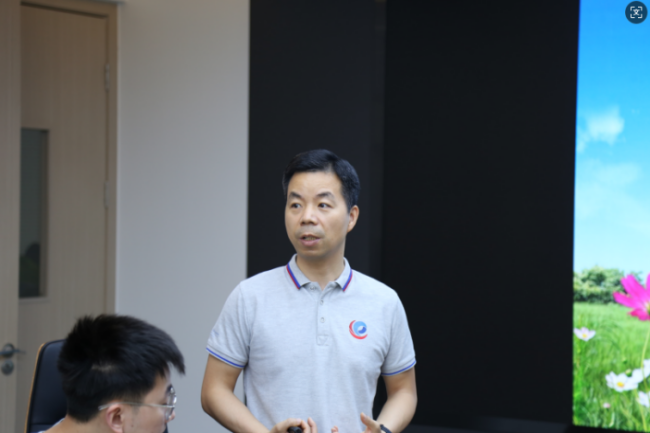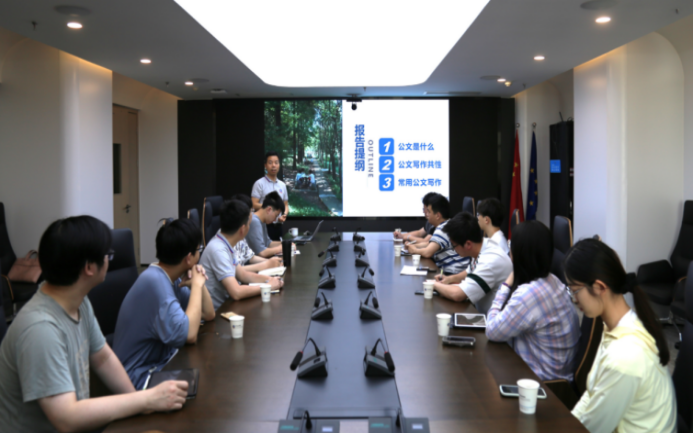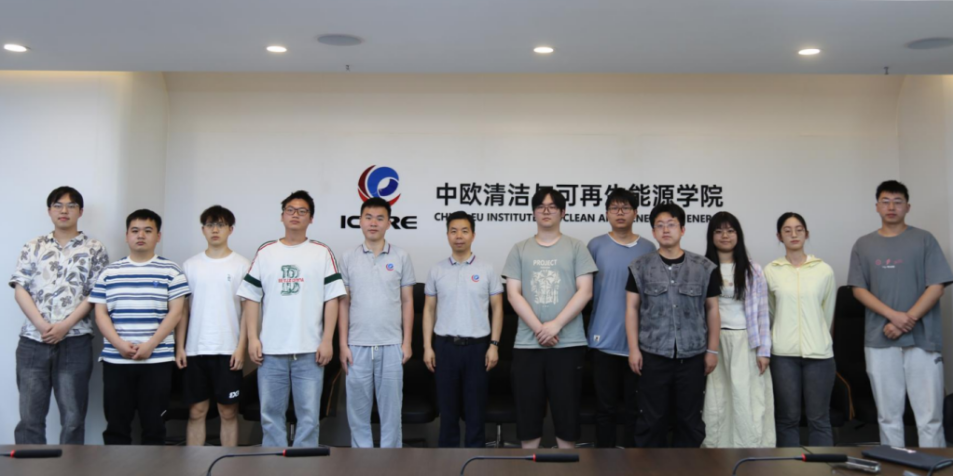To strengthen students’ skills in official document writing and enhance their competitiveness in the job market, ICARE successfully held the first session of its special seminar “Official Document Writing,” part of the 6th Job Hunting Training Camp, on the morning of May 12, 2025. Dr. Zou Mingqing, Vice Dean of ICARE, delivered the keynote lecture, with student counselor Ms. Zhao Yiting as the host. Dr. Zou has held various roles in the Party Committee Office and President’s Office at Huazhong University of Science and Technology, gaining extensive practical experience in official writing.

“Official documents are essential tools for effective work and communication,” Dr. Zou emphasized. He explained that mastering standardized document writing not only enhances administrative efficiency but also reflects a person’s logical thinking and professional competence. He systematically introduced key norms and techniques for writing official documents. By comparing real examples before and after editing, he vividly illustrated the structural elements—header, body, and footer—as well as critical components like writing rules, consultation procedures, explanatory notes, and background context.

Dr. Zou focused on three core characteristics of effective official documents. First, directionality: understanding the differences between upward, parallel, and downward communications. Second, confidentiality: drafting and managing documents in line with their security classification. Third, standardized workflow: following clear steps from drafting to review and approval. Using real HUST documents, he walked students through the complete process from creation to final authorization.
He then explained common document types. For upward communications, he emphasized that requests should follow the principle of “one issue per document,” and reports should remain factual. For parallel communications, such as letters, a collaborative tone is vital. For downward communications like approvals or decisions, authoritative language is required. Through specific examples, he illustrated key writing techniques and common mistakes to avoid.

Dr. Zou also linked these standards to academic settings. Drawing from experience, he gave practical advice on writing research progress reports, communicating with supervisors, and drafting academic emails. These insights resonated with students, particularly those aiming for civil service careers, whom he encouraged to develop strong writing skills early.



